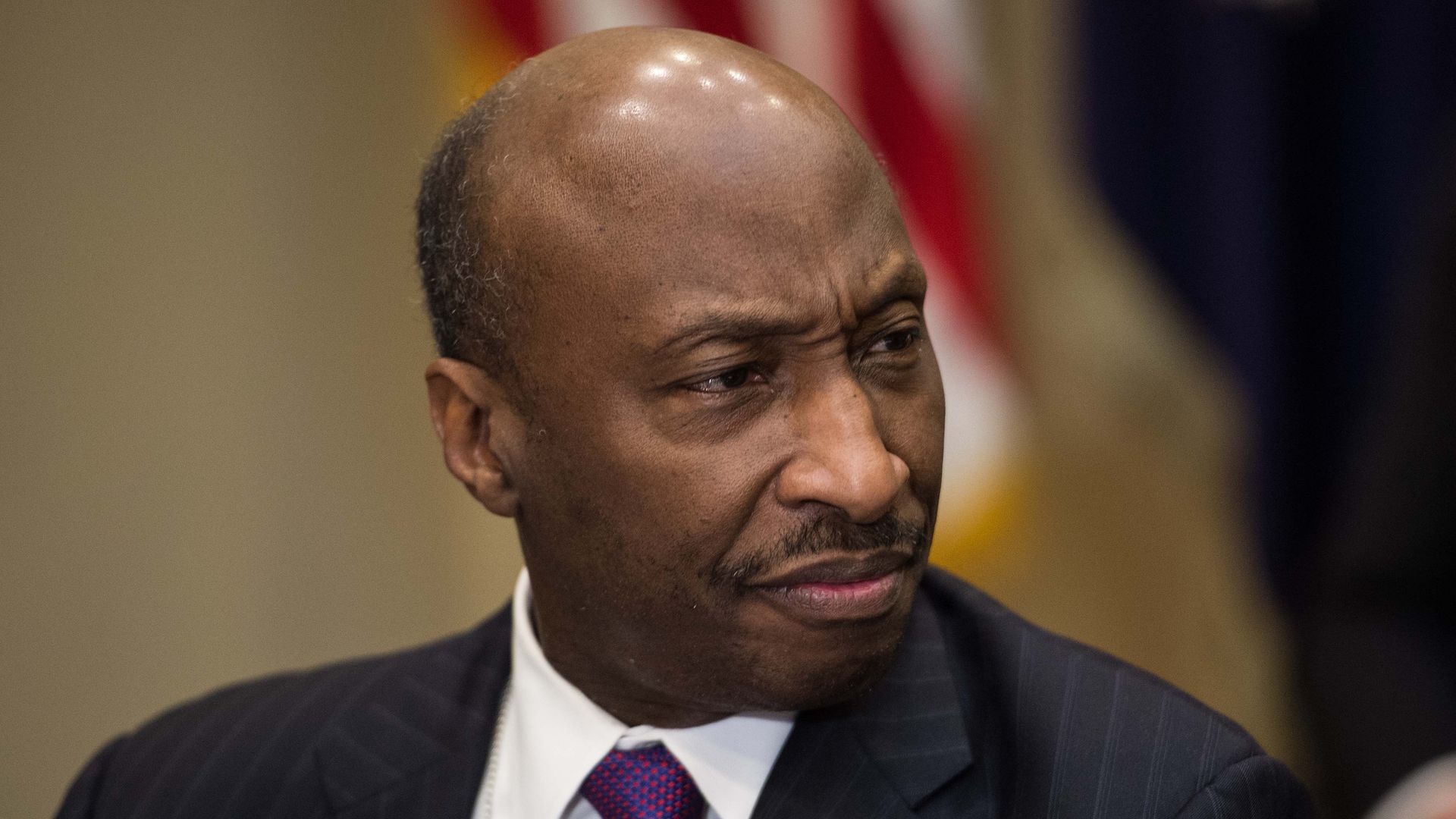Merck CEO: Trump's Charlottesville remarks challenge "basic values of the country"
Add Axios as your preferred source to
see more of our stories on Google.

Merck CEO Kenneth Frazier. Photo: Nicholas Kamm/AFP/Getty Images
Kenneth Frazier, CEO of the pharmaceuticals company Merck, was the first CEO to leave one of President Trump's business advisory councils last August after the president made divisive remarks following the white nationalist Charlottesville protests. Now, he's explaining why he abandoned Trump's council in a new interview with the New York Times:
“In this case, we were not talking about politics. We were talking about the basic values of the country. ... I think words have consequences and I think actions have consequences. I just felt that as a matter of my own personal conscience, I could not remain.”
Why it matters: The NYT interview is the first time Frazier has spoken publicly about this situation and it brings Trump's controversial Charlottesville comments back to light in a time when he's facing allegations from multiple women about past affairs.
More from Frazier:
- “It was my view that to not take a stand on this would be viewed as a tacit endorsement of what had happened and what was said,” he told NYT.
- He's the grandson of a man who was born into slavery. At the time he left the business council, he tweeted from Merck's account: “I feel a responsibility to take a stand against extremism,” he wrote on Merck’s Twitter account at the time.
- “In that moment, the president’s response was one that I felt was not in concordance with my views," Frazier told NYT. "And I didn’t think they were in concordance with the views that we claim to hold as a country.”
One more thing: Charlottesville wasn't the only Trump moment Frazier disagreed with. “There were things that happened earlier on in this administration that I didn’t necessarily agree with, about immigration and climate change, but I didn’t think that it was my role to actually speak out on those issues,” he told NYT. “There’s a process for deciding how we address those issues as a country. This is a democracy.”
